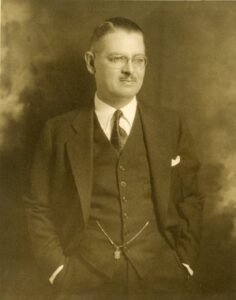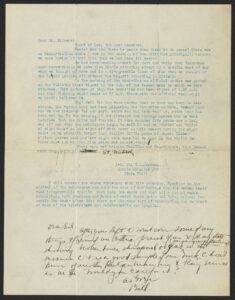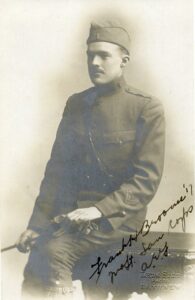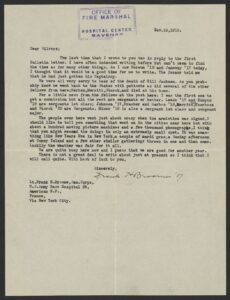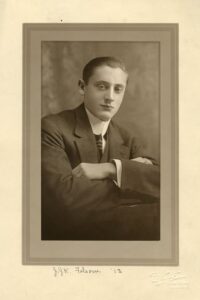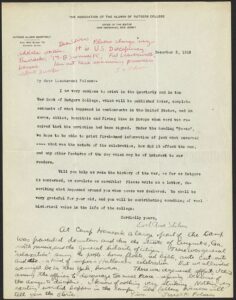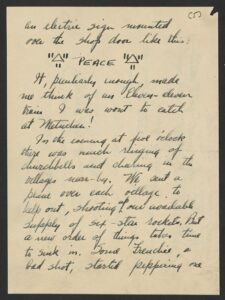November 11, 2018 is Veterans Day and marks the 100th anniversary of the Armistice that ended World War I. To commemorate this centennial, What Exit? will be featuring letters from Special Collections and University Archives’ Records of the Rutgers College War Service Bureau. This collection features letters from Rutgers students and alumni who served in the First World War, describing their experiences serving in the United States and overseas. Each day between November 1 and 11, Voices of the Armistice posts will share what these Rutgers students from 100 years ago had to say about the moment when peace was declared.
Donald Malven, class of 1919, was serving with the American Expeditionary Forces in France when peace was declared on November 11, 1918. He wrote to War Service Bureau director Earl Reed Silvers:
“On the day the armistice was signed we were hiking back from the front for rest and, altho we didn’t hear of the real signing of the armistice till evening, we knew that there were rumors that it would be signed. After we had pitched our pup tents for a cold, wet night of it, suddenly the bugle blew attention and the news was read to us.
Then our Band which joined us that night played “Home Sweet Home” and we began to celebrate. We all built big roaring bonfires, (the first we’d had in ages) in front of our own pup tents. We dried out and got warm and thou’t that it really wasn’t such a tough old world after all.”

The Rutgers War Service Bureau was formed in 1917 as a way to keep Rutgers men serving in the war in touch with Rutgers and each other. It was headed by Earl Reed Silvers (class of 1913), who was assistant to Rutgers president William Henry Steele Demarest. Thanks to a grant from the New Jersey Historical Commission, the letters are now available online.
Be sure to visit What Exit? between November 1 and 11 for new stories and follow highlights on Special Collections and University Archives’ Facebook and Twitter.
(With assistance from Tara Maharjan.)
